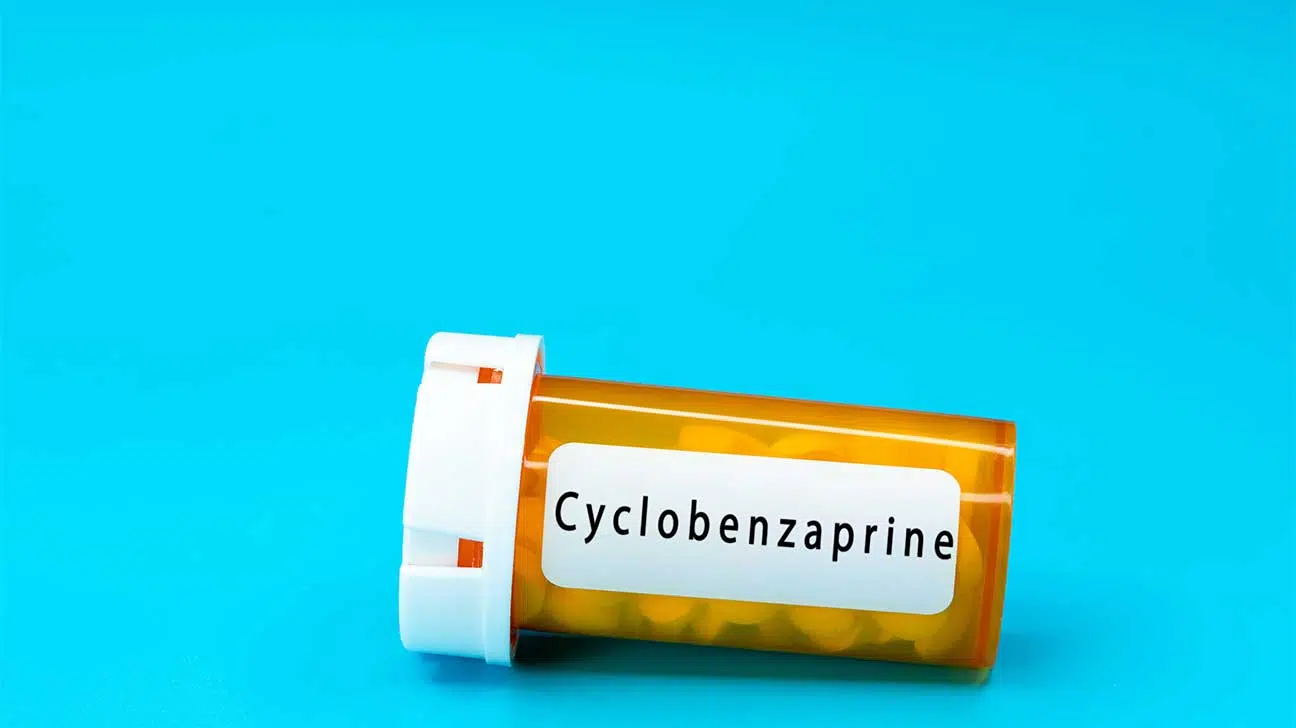
Flexeril is a central nervous system (CNS) muscle relaxer and is a popular brand name for the generic name cyclobenzaprine. Another major brand is Amrix.
This type of drug is typically used to treat muscle spasms, back pain, and muscle pain. As a pain reliever, Flexeril is generally only prescribed to people on a short-term basis.
This is because it has the potential for strong and dangerous side effects that can be life-threatening when the drug is abused in high doses.
Flexeril is not considered a controlled substance or narcotic by the U.S. Drug Enforcement Administration (DEA).
It is, however, considered a “drug of concern”, and people who are prescribed it are closely monitored by their healthcare provider.
Why Flexeril Is Not Considered A Narcotic
Flexeril is not considered a narcotic because it is not a part of the opioid family and is not a narcotic agent.
Unlike opioids, which are incredibly addictive, there is no current evidence that Flexeril is addictive.
Reasons Flexeril Is Not A Controlled Substance
Addiction is subjective, and although there are some people who have reported a slight addiction to Flexeril, most people do not experience an addiction to or dependence on the medication.
Flexeril is considered safe enough to not be classified as a controlled substance or a narcotic.
Which Drug Class Is Flexeril A Part Of?
Flexeril is part of the drug class of skeletal muscle relaxants, which is structurally related to a class of drugs known as tricyclic antidepressants.
It is only available by prescription and is generally used alongside physical therapy in order to provide short-term pain relief.
People who use Flexeril for longer periods of time for conditions like chronic pain and fibromyalgia have reported adverse effects and withdrawal symptoms when going off it.
How Flexeril Use Can Lead To Misuse
While Flexeril is not considered a controlled substance, there is evidence of its misuse due to the sedation effects and mild high that it causes.
Abuse of this medication includes crushing and snorting Flexeril. Most commonly, Flexeril is abused in unison with other drugs, such as alcohol.
Using Flexeril with a CNS depressant is dangerous, because each drug will only amplify the other’s dangerous side effects.
A person should never operate machinery or attempt to drive while mixing Flexeril with other drugs.
Common Side Effects Of Flexeril Misuse
The reason that Flexeril is a drug of concern according to the DEA is because of its potentially dangerous and life-threatening side effects.
This is also the reason why prescriptions typically never last more than a few weeks.
Potential side effects of Flexeril use include:
- drowsiness
- dizziness
- blurred vision
- dry mouth
- hallucinations
- confusion
- irregular heartbeat or palpitations
- malaise
Is Flexeril Dangerous?
Flexeril is safe when used as prescribed and as directed.
Flexeril becomes dangerous when it is used simultaneously with other drugs, especially other depressants such as alcohol, benzodiazepines, and barbiturates.
These drugs can make each other’s effects stronger and can slow a person’s heart rate, blood pressure, and breathing.
Depending on the drug used with Flexeril, a person’s risk of overdose and a trip to the emergency room can be greatly increased.
In rare cases, Flexeril can also cause a potentially life-threatening condition known as serotonin syndrome.
This occurs when a person builds up too much serotonin in their body, usually as the result of a medication.
Find Treatment Services For Flexeril Abuse
While Flexeril addiction in itself is rare, if someone is abusing it alongside other illicit substances or prescription drugs, professional substance use treatment may be a great option.
Treatment options for substance abuse include:
- residential treatment
- day treatment
- medical detox
- individual counseling
- behavioral therapy
- medication management
- case management
- relapse prevention support
Find Drug Abuse And Addiction Treatment Today
Are you or a loved one battling substance abuse? You are not alone.
Get in touch with our treatment specialists if you have any questions or to let us know you’d like to get started on a comprehensive treatment plan.
Recovery is possible and just a phone call away.
Addiction Resource aims to provide only the most current, accurate information in regards to addiction and addiction treatment, which means we only reference the most credible sources available.
These include peer-reviewed journals, government entities and academic institutions, and leaders in addiction healthcare and advocacy. Learn more about how we safeguard our content by viewing our editorial policy.
- National Institute of Health: National Library of Medicine
https://www.ncbi.nlm.nih.gov/books/NBK548894/ - U.S. Drug Enforcement Administration (DEA)
https://www.deadiversion.usdoj.gov/drug_chem_info/cyclobenzaprine.pdf - U.S. Food and Drug Administration (FDA)
https://www.accessdata.fda.gov/drugsatfda_docs/label/2003/017821s045lbl.pdf


